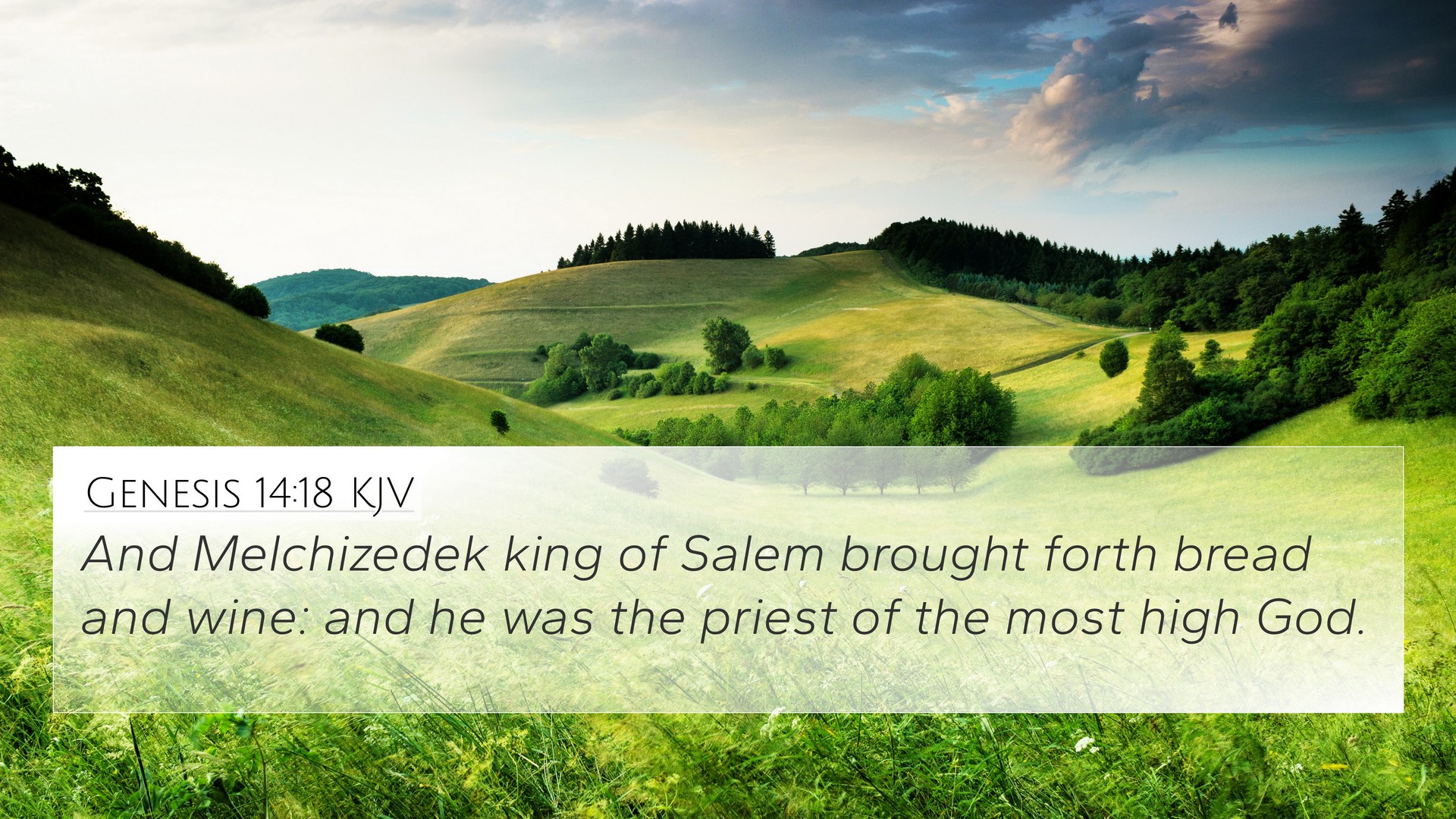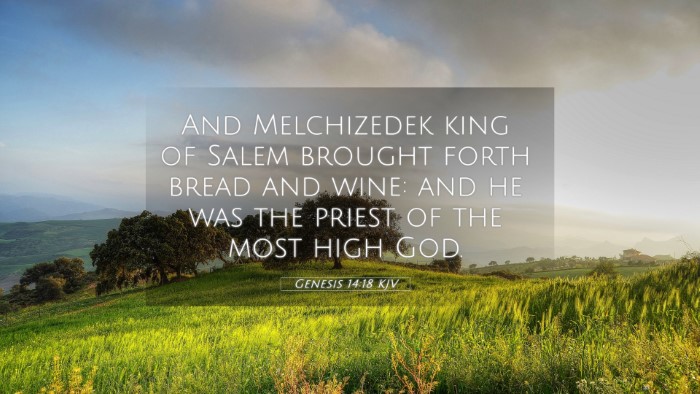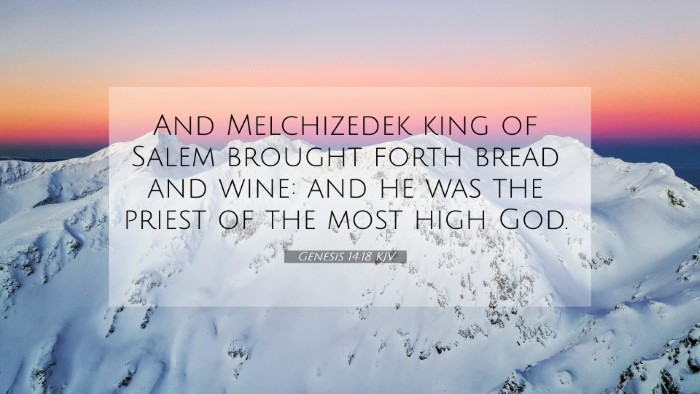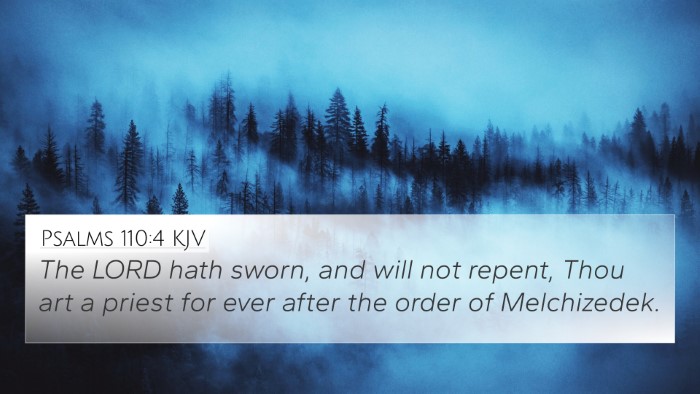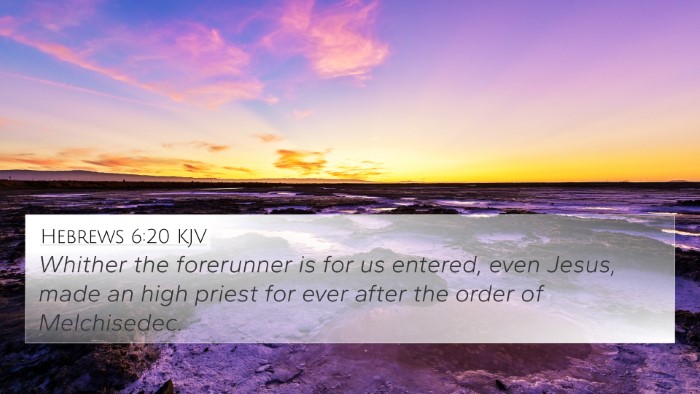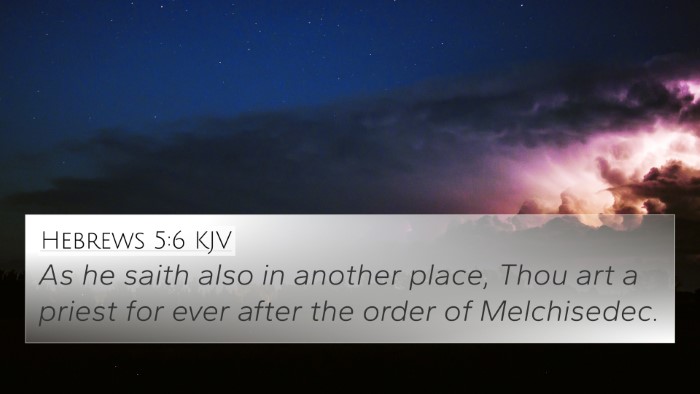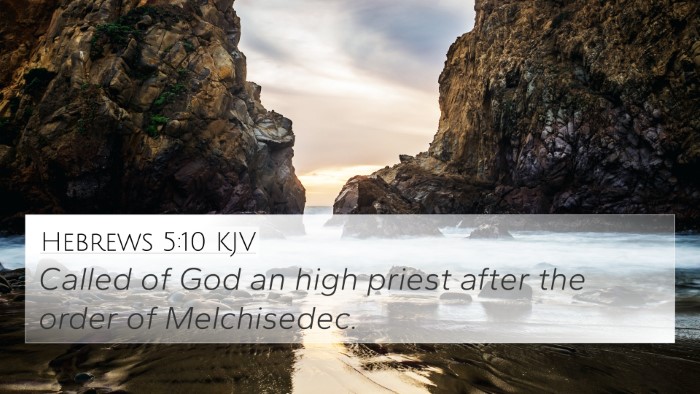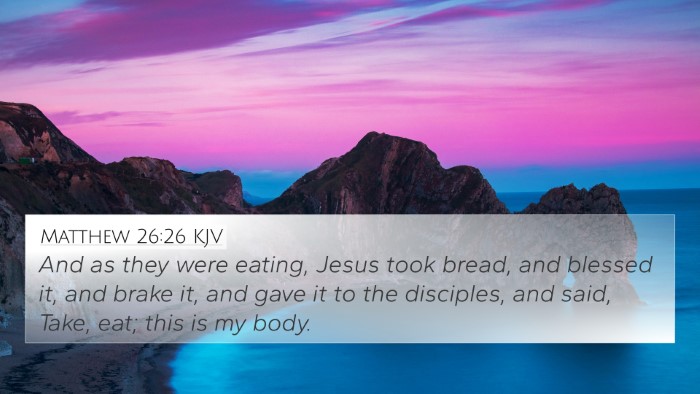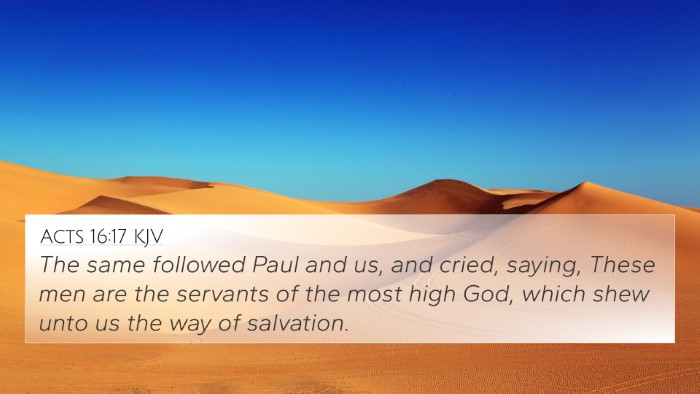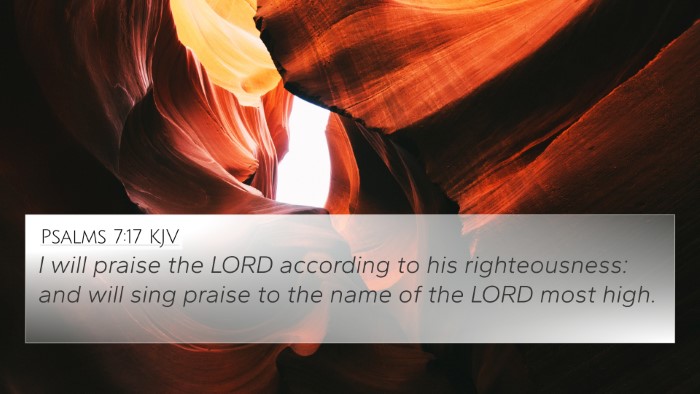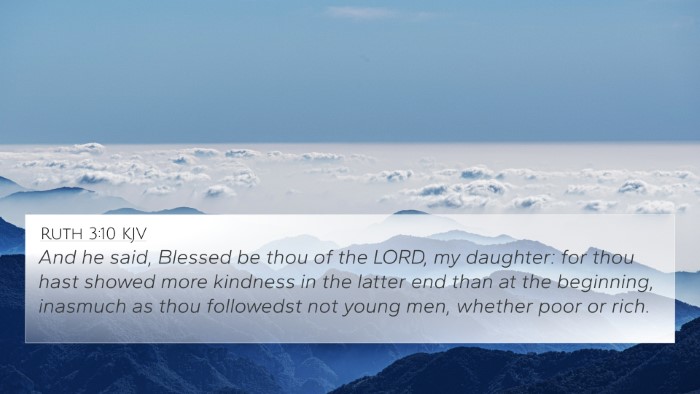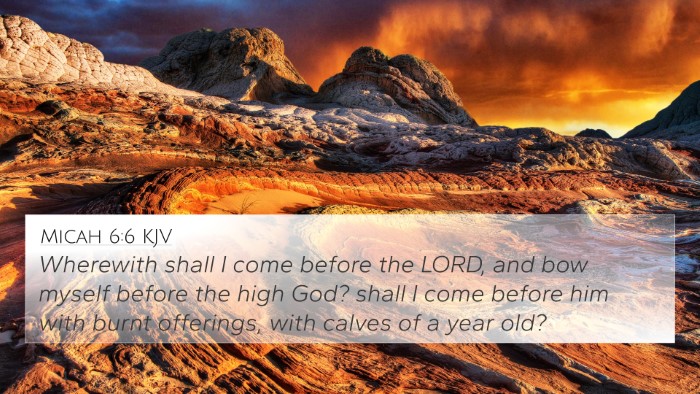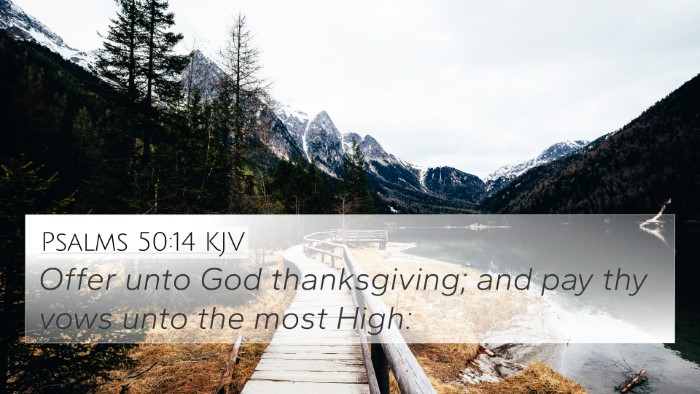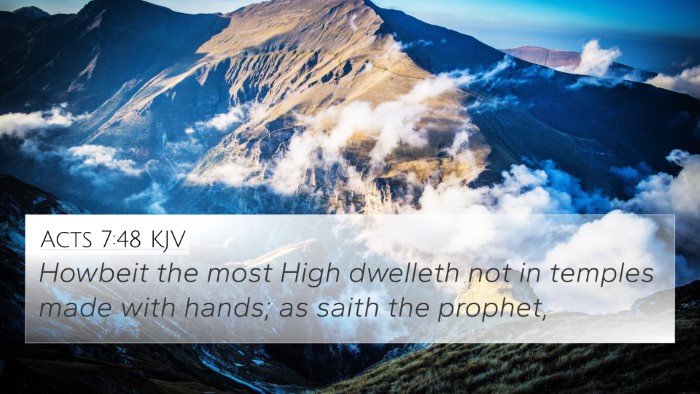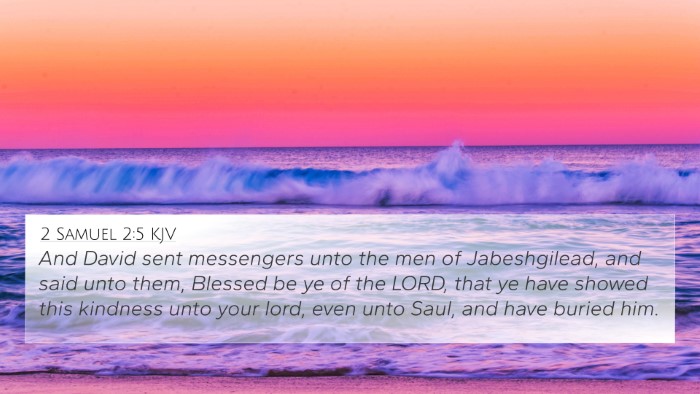Understanding Genesis 14:18
Genesis 14:18 says: "And Melchizedek king of Salem brought forth bread and wine: and he was the priest of the most high God."
This verse introduces Melchizedek, a figure of great significance in biblical theology. To comprehend the meaning of this verse, we can consider insights from various public domain commentaries, including those by Matthew Henry, Albert Barnes, and Adam Clarke. The connections between Bible verses will help illuminate its meaning.
Theological Implications
Melchizedek is recognized as a priest-king, a rare combination in biblical texts that foreshadows Christ's dual role as both king and priest. His offering of bread and wine has often been interpreted as a precursor to the Eucharist in Christian theology.
Commentary Insights
Matthew Henry Commentary
According to Matthew Henry, Melchizedek's role as a priest signifies the establishment of a divine order of worship that precedes the Levitical priesthood. His offering suggests a communion and fellowship with God, emphasizing the importance of spiritual nourishment.
Albert Barnes Commentary
Albert Barnes highlights that Melchizedek was not just a king but also a priest, which is particularly noted for its uniqueness in scripture. This blending of roles indicates a supreme authority that links back to God's original covenant with humanity, where divine provision and sovereign rule are central themes.
Adam Clarke Commentary
Adam Clarke elaborates on the significance of bread and wine, suggesting they symbolize sustenance and the blessing of God. The act of bringing these offerings is indicative of the spiritual nourishment that believers receive through faith and worship.
Bible Verse Cross-References
Several other Bible verses relate to Genesis 14:18, creating a network of connections that can deepen our understanding:
- Hebrews 5:6 - Discusses Jesus as a priest in the order of Melchizedek.
- Hebrews 7:1-3 - Expands on Melchizedek's role, emphasizing his eternal priesthood.
- Psalm 110:4 - Prophetically references the priestly order of Melchizedek.
- Matthew 26:26-28 - Jesus institutes the Last Supper with bread and wine, linking to Melchizedek's offering.
- Genesis 28:22 - Jacob’s vow signifies a connection to God's promise and provisions, reminiscent of Melchizedek’s role.
- Luke 22:19-20 - Further illustrates the significance of bread and wine in Christ's sacrifice.
- Romans 5:1-2 - Discusses peace with God through faith, linking to the priestly intercessions.
Connecting Themes
The thematic Bible verse connections enrich the study of Genesis 14:18. Melchizedek serves as a bridge between the Old and New Testaments, where key attributes of God’s character are revealed:
- Divine Sovereignty: The kingship of Melchizedek reflects God’s ultimate authority.
- Spiritual Nourishment: The bread and wine foreshadow the enduring nature of God's provision.
- Peace and Righteousness: Melchizedek's name means "king of righteousness," which speaks to the importance of peace in God's kingdom.
Conclusion
Genesis 14:18, when studied in light of related scripture, opens the door to a profound understanding of the character of God and the spiritual truths embedded within the Bible. The concept of Melchizedek as a priest-king serves as an essential piece in the puzzle of biblical theology, illustrating the continuity of God's plan through history.
